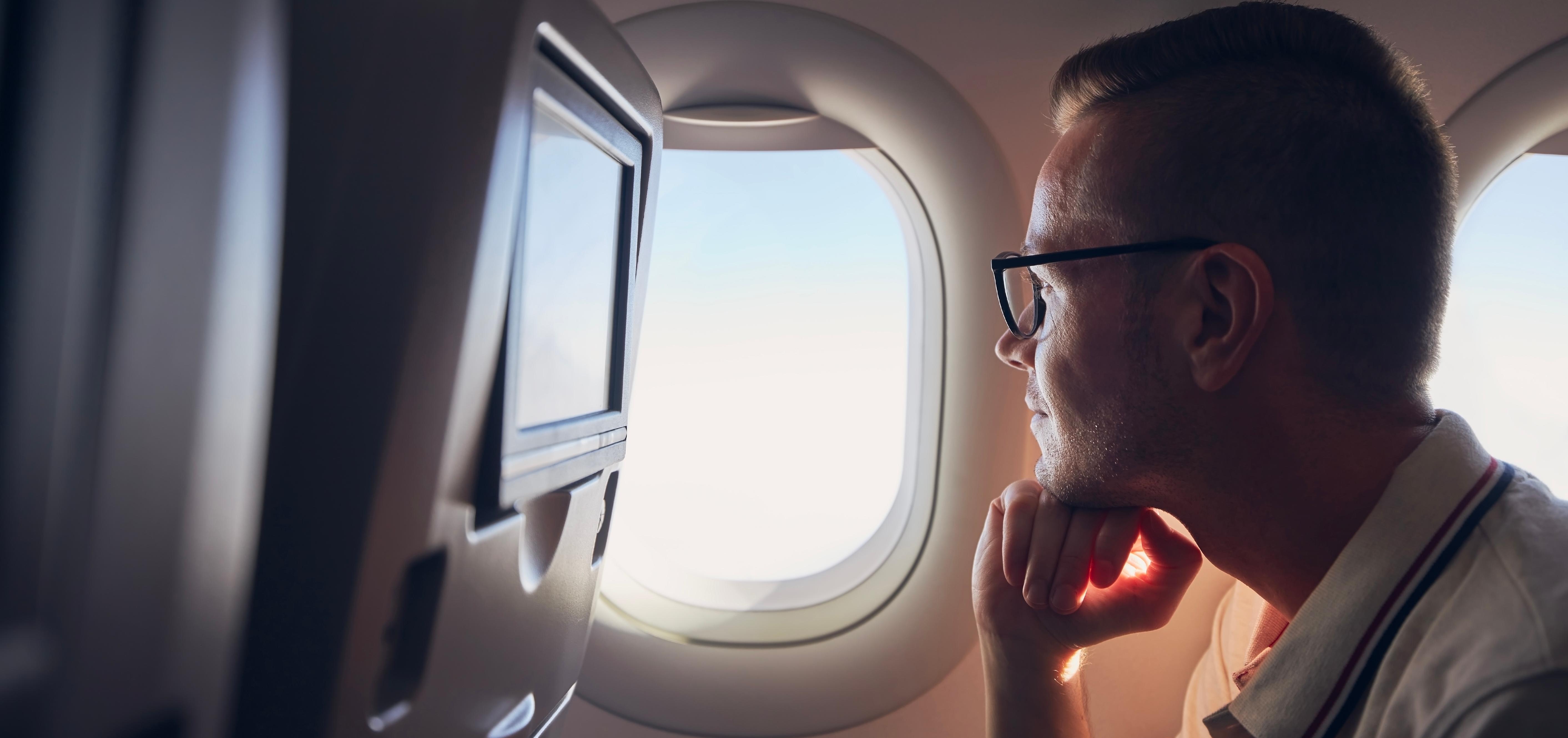What a Flight Anxiety Therapist Wants You to Do Before Getting on a Plane
Air travel can be nerve-wracking–packing, going through security, finding your gate, dealing with delays, and then there’s the flying-through-the-air part. To many people, it feels scary. Fear of flying affects more than 25 million U.S. adults and general anxiety about air travel affects even more.
Also known as aerophobia, fear of flying can include anxiety and panic around take-off, landing, being in the air, and being on the plane. Some people become anxious that they’ll feel difficult emotions during the flight.
Nathan Feiles is a licensed therapist with experience in helping people navigate and ultimately overcome their fear of flying. Here, Feiles explains how flight anxiety can show up for people and how to begin to overcome this fear.
Symptoms of Flight Anxiety
People can experience flight anxiety in different ways. One way is anticipatory anxiety, says Feiles. This is when the mind and body start experiencing anxiety, dread, or panic in the days or weeks before the flight. It might include feeling overwhelmed by thoughts of catastrophe or even trying to find reasons not to go on the trip. Other signs include difficulty sleeping, dreams about flying, and feelings of doom.
“On the plane, people may feel trapped and worry about not being able to escape,” says Feiles. Some people may feel panic, experience intense worry, believe the worst will happen, or have fear around experiencing a medical event without help.
How Can You Manage Flight Anxiety?
Overcoming flight anxiety or a fear of flying involves learning how to normalize flying, working through the elements that contribute to the fear, and building tools for emotional regulation, shares Feiles.
It can take time to decrease your fear or anxiety around flying. These tips can help you build that toolbox of skills to help you feel calmer, less anxious, and more refreshed when you arrive at your destination.
Limit How Much News You View Leading Up to the Flight
Most news about flying is focused on events in which things have gone wrong. “Media coverage of flying, unfortunately, often has a way of stoking fear more than calming it,” says Feiles. Because news often repeats coverage of incidents, we tend to internalize the negative and forget the positive and routine nature of air travel, he shares.
Feiles thinks that news of back-to-back flight incidents might have played a role in increasing some people’s fear of flying. "The odds of an incident haven't really increased, but the coverage of anything negative, even if not catastrophes, has become much more pronounced in the media and especially social media,” says Feiles.
Expect Anxiety
Rather than trying to battle anxiety and pretend it’s not there, Feiles recommends accepting that you might feel anxious before and during your flight. Remind yourself that it’s common to experience anxiety and that you’ve felt it and dealt with it before. This can boost your confidence and help you feel ready to handle it.
Rank Each Bump in Turbulence
If turbulence stresses you out, Feiles recommends rating each bump you feel in your flight. For example, give it a 2 out of 10, 5 out of 10, etc. “The idea with this exercise is that people can start interacting differently with turbulence, and to be able to start finding the middle ground between the calm and the catastrophic,” he says.
This activity helps people focus on “what is” (the current reality) instead of the “what ifs” (ideas of what could happen). Plus, it can offer a sense of control in moments that feel out of control.
Remember not every exercise will work for everyone. If you feel like you’ll rate each bump a 10, it might be more helpful to try exercises like the other ones mentioned in this article.
Try a Grounding Exercise
If you’re feeling a sense of panic or intense anxiety on the flight, Feiles recommends this classic grounding activity. A grounding exercise can help you keep your thoughts focused on the present moment. Try finding five things around you that are the same color. Start with red and move through the colors of the rainbow until your panic slows down.
Consider Seeking Support from a Mental Health Provider
If flight anxiety or fear starts to affect your quality of life, consider speaking to a mental health professional, who can help you develop coping skills specific to your needs. According to Feiles, a combination of different strategies will allow someone to eventually overcome their fear.
He wants people to know that it’s possible to overcome fear of flying and to shift your emotions when taking a flight.
Want to Read More?
Access all of Dario Connect’s content, community, and experts for free!
Already a member? Login
Want to Read More?
Access all of Dario Connect’s content, community, and experts for free!
sign UP For FreeAlready a member? Login


